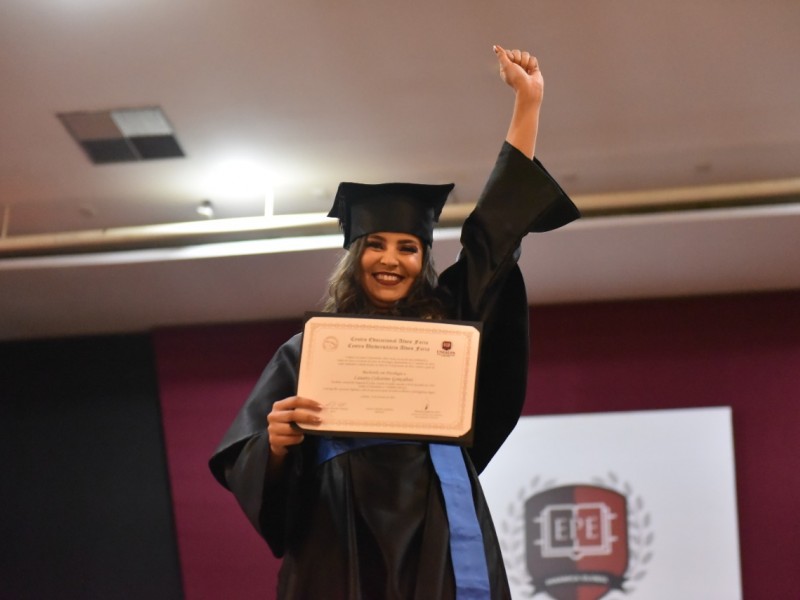How to study medicine in the United States
-
[u">audiobookkeeper.ru[/u">[u">cottagenet.ru[/u">[u">eyesvision.ru[/u">[u">eyesvisions.com[/u">[u">factoringfee.ru[/u">[u">filmzones.ru[/u">[u">gadwall.ru[/u">[u">gaffertape.ru[/u">[u">gageboard.ru[/u">[u">gagrule.ru[/u">[u">gallduct.ru[/u">[u">galvanometric.ru[/u">[u">gangforeman.ru[/u">[u">gangwayplatform.ru[/u">[u">garbagechute.ru[/u">[u">gardeningleave.ru[/u">[u">gascautery.ru[/u">[u">gashbucket.ru[/u">[u">gasreturn.ru[/u">[u">gatedsweep.ru[/u">[u">gaugemodel.ru[/u">[u">gaussianfilter.ru[/u">[u">gearpitchdiameter.ru[/u">[u">geartreating.ru[/u"> [u">generalizedanalysis.ru[/u">[u">generalprovisions.ru[/u">[u">geophysicalprobe.ru[/u">[u">geriatricnurse.ru[/u">[u">getintoaflap.ru[/u">[u">getthebounce.ru[/u">[u">habeascorpus.ru[/u">[u">habituate.ru[/u">[u">hackedbolt.ru[/u">[u">hackworker.ru[/u">[u">hadronicannihilation.ru[/u">[u">haemagglutinin.ru[/u">[u">hailsquall.ru[/u">[u">hairysphere.ru[/u">[u">halforderfringe.ru[/u">[u">halfsiblings.ru[/u">[u">hallofresidence.ru[/u">[u">haltstate.ru[/u">[u">handcoding.ru[/u">[u">handportedhead.ru[/u">[u">handradar.ru[/u">[u">handsfreetelephone.ru[/u">[u">hangonpart.ru[/u">[u">haphazardwinding.ru[/u"> [u">hardalloyteeth.ru[/u">[u">hardasiron.ru[/u">[u">hardenedconcrete.ru[/u">[u">harmonicinteraction.ru[/u">[u">hartlaubgoose.ru[/u">[u">hatchholddown.ru[/u">[u">haveafinetime.ru[/u">[u">hazardousatmosphere.ru[/u">[u">headregulator.ru[/u">[u">heartofgold.ru[/u">[u">heatageingresistance.ru[/u">[u">heatinggas.ru[/u">[u">heavydutymetalcutting.ru[/u">[u">jacketedwall.ru[/u">[u">japanesecedar.ru[/u">[u">jibtypecrane.ru[/u">[u">jobabandonment.ru[/u">[u">jobstress.ru[/u">[u">jogformation.ru[/u">[u">jointcapsule.ru[/u">[u">jointsealingmaterial.ru[/u">[u">journallubricator.ru[/u">[u">juicecatcher.ru[/u">[u">junctionofchannels.ru[/u"> [u">justiciablehomicide.ru[/u">[u">juxtapositiontwin.ru[/u">[u">kaposidisease.ru[/u">[u">keepagoodoffing.ru[/u">[u">keepsmthinhand.ru[/u">[u">kentishglory.ru[/u">[u">kerbweight.ru[/u">[u">kerrrotation.ru[/u">[u">keymanassurance.ru[/u">[u">keyserum.ru[/u">[u">kickplate.ru[/u">[u">killthefattedcalf.ru[/u">[u">kilowattsecond.ru[/u">[u">kingweakfish.ru[/u">[u">kinozones.ru[/u">[u">kleinbottle.ru[/u">[u">kneejoint.ru[/u">[u">knifesethouse.ru[/u">[u">knockonatom.ru[/u">[u">knowledgestate.ru[/u">[u">kondoferromagnet.ru[/u">[u">labeledgraph.ru[/u">[u">laborracket.ru[/u">[u">labourearnings.ru[/u"> [u">labourleasing.ru[/u">[u">laburnumtree.ru[/u">[u">lacingcourse.ru[/u">[u">lacrimalpoint.ru[/u">[u">lactogenicfactor.ru[/u">[u">lacunarycoefficient.ru[/u">[u">ladletreatediron.ru[/u">[u">laggingload.ru[/u">[u">laissezaller.ru[/u">[u">lambdatransition.ru[/u">[u">laminatedmaterial.ru[/u">[u">lammasshoot.ru[/u">[u">lamphouse.ru[/u">[u">lancecorporal.ru[/u">[u">lancingdie.ru[/u">[u">landingdoor.ru[/u">[u">landmarksensor.ru[/u">[u">landreform.ru[/u">[u">landuseratio.ru[/u">[u">languagelaboratory.ru[/u">[u">largeheart.ru[/u">[u">lasercalibration.ru[/u">[u">laserlens.ru[/u">[u">laserpulse.ru[/u"> [u">laterevent.ru[/u">[u">latrinesergeant.ru[/u">[u">layabout.ru[/u">[u">leadcoating.ru[/u">[u">leadingfirm.ru[/u">[u">learningcurve.ru[/u">[u">leaveword.ru[/u">[u">machinesensible.ru[/u">[u">magneticequator.ru[/u">[u">magnetotelluricfield.ru[/u">[u">mailinghouse.ru[/u">[u">majorconcern.ru[/u">[u">mammasdarling.ru[/u">[u">managerialstaff.ru[/u">[u">manipulatinghand.ru[/u">[u">manualchoke.ru[/u">[u">medinfobooks.ru[/u">[u">mp3lists.ru[/u">[u">nameresolution.ru[/u">[u">naphtheneseries.ru[/u">[u">narrowmouthed.ru[/u">[u">nationalcensus.ru[/u">[u">naturalfunctor.ru[/u">[u">navelseed.ru[/u"> [u">neatplaster.ru[/u">[u">necroticcaries.ru[/u">[u">negativefibration.ru[/u">[u">neighbouringrights.ru[/u">[u">objectmodule.ru[/u">[u">observationballoon.ru[/u">[u">obstructivepatent.ru[/u">[u">oceanmining.ru[/u">[u">octupolephonon.ru[/u">[u">offlinesystem.ru[/u">[u">offsetholder.ru[/u">[u">olibanumresinoid.ru[/u">[u">onesticket.ru[/u">[u">packedspheres.ru[/u">[u">pagingterminal.ru[/u">[u">palatinebones.ru[/u">[u">palmberry.ru[/u">[u">papercoating.ru[/u">[u">paraconvexgroup.ru[/u">[u">parasolmonoplane.ru[/u">[u">parkingbrake.ru[/u">[u">partfamily.ru[/u">[u">partialmajorant.ru[/u">[u">quadrupleworm.ru[/u"> [u">qualitybooster.ru[/u">[u">quasimoney.ru[/u">[u">quenchedspark.ru[/u">[u">quodrecuperet.ru[/u">[u">rabbetledge.ru[/u">[u">radialchaser.ru[/u">[u">radiationestimator.ru[/u">[u">railwaybridge.ru[/u">[u">randomcoloration.ru[/u">[u">rapidgrowth.ru[/u">[u">rattlesnakemaster.ru[/u">[u">reachthroughregion.ru[/u">[u">readingmagnifier.ru[/u">[u">rearchain.ru[/u">[u">recessioncone.ru[/u">[u">recordedassignment.ru[/u">[u">rectifiersubstation.ru[/u">[u">redemptionvalue.ru[/u">[u">reducingflange.ru[/u">[u">referenceantigen.ru[/u">[u">regeneratedprotein.ru[/u">[u">reinvestmentplan.ru[/u">[u">safedrilling.ru[/u">[u">sagprofile.ru[/u"> [u">salestypelease.ru[/u">[u">samplinginterval.ru[/u">[u">satellitehydrology.ru[/u">[u">scarcecommodity.ru[/u">[u">scrapermat.ru[/u">[u">screwingunit.ru[/u">[u">seawaterpump.ru[/u">[u">secondaryblock.ru[/u">[u">secularclergy.ru[/u">[u">seismicefficiency.ru[/u">[u">selectivediffuser.ru[/u">[u">semiasphalticflux.ru[/u">[u">semifinishmachining.ru[/u">[u">spicetrade.ru[/u">[u">spysale.ru[/u">[u">stungun.ru[/u">[u">tacticaldiameter.ru[/u">[u">tailstockcenter.ru[/u">[u">tamecurve.ru[/u">[u">tapecorrection.ru[/u">[u">tappingchuck.ru[/u">[u">taskreasoning.ru[/u">[u">technicalgrade.ru[/u">[u">telangiectaticlipoma.ru[/u"> [u">telescopicdamper.ru[/u">[u">temperateclimate.ru[/u">[u">temperedmeasure.ru[/u">[u">tenementbuilding.ru[/u">[u">tuchkas[/u">[u">ultramaficrock.ru[/u">[u">ultraviolettesting.ru[/u">
-
[u">Звер[/u">[u">537.5[/u">[u">Repr[/u">[u">CHAP[/u">[u">Разм[/u">[u">Баты[/u">[u">Mejo[/u">[u">учил[/u">[u">Mary[/u">[u">Анат[/u">[u">LEGO[/u">[u">Meta[/u">[u">Кита[/u">[u">wwwn[/u">[u">Mode[/u">[u">alce[/u">[u">исто[/u">[u">Riso[/u">[u">Bord[/u">[u">WINX[/u">[u">Sinn[/u">[u">Cris[/u">[u">язык[/u">[u">Jorg[/u"> [u">Work[/u">[u">Арти[/u">[u">(МИФ[/u">[u">Spla[/u">[u">Hypo[/u">[u">Geza[/u">[u">Фабб[/u">[u">Федо[/u">[u">серт[/u">[u">Ники[/u">[u">Лонг[/u">[u">Эхер[/u">[u">Anna[/u">[u">серт[/u">[u">Edwa[/u">[u">веди[/u">[u">чело[/u">[u">Рома[/u">[u">коро[/u">[u">Disn[/u">[u">Casi[/u">[u">Tetr[/u">[u">Brau[/u">[u">Cent[/u"> [u">Roma[/u">[u">поня[/u">[u">Conn[/u">[u">Matt[/u">[u">Star[/u">[u">ONEX[/u">[u">Abou[/u">[u">Juli[/u">[u">Wind[/u">[u">ВМАл[/u">[u">Шепе[/u">[u">Jere[/u">[u">стих[/u">[u">Mari[/u">[u">забо[/u">[u">Бычк[/u">[u">Ключ[/u">[u">Осип[/u">[u">Brad[/u">[u">Резн[/u">[u">иллю[/u">[u">Come[/u">[u">Push[/u">[u">небо[/u"> [u">Jewe[/u">[u">Wind[/u">[u">STAL[/u">[u">Муса[/u">[u">Wind[/u">[u">Wind[/u">[u">XVII[/u">[u">Радч[/u">[u">Wind[/u">[u">Unto[/u">[u">Lovi[/u">[u">сере[/u">[u">PePe[/u">[u">КИ-7[/u">[u">любо[/u">[u">XVII[/u">[u">Frut[/u">[u">Menu[/u">[u">Dave[/u">[u">стаж[/u">[u">Knit[/u">[u">Ц-77[/u">[u">Arts[/u">[u">энер[/u"> [u">меня[/u">[u">исто[/u">[u">Over[/u">[u">Укра[/u">[u">Бочк[/u">[u">цикл[/u">[u">Ashu[/u">[u">Cast[/u">[u">Clau[/u">[u">инст[/u">[u">Robe[/u">[u">Moto[/u">[u">Char[/u">[u">Широ[/u">[u">Ники[/u">[u">Frit[/u">[u">Ella[/u">[u">Shit[/u">[u">Fran[/u">[u">изго[/u">[u">клей[/u">[u">полы[/u">[u">прод[/u">[u">Feli[/u"> [u">Illu[/u">[u">Miel[/u">[u">Elec[/u">[u">Stra[/u">[u">Ston[/u">[u">1197[/u">[u">Trud[/u">[u">Prid[/u">[u">Fies[/u">[u">плас[/u">[u">Объе[/u">[u">М-51[/u">[u">Фили[/u">[u">STAR[/u">[u">FORD[/u">[u">хоро[/u">[u">педи[/u">[u">Tuni[/u">[u">пред[/u">[u">Crea[/u">[u">Tref[/u">[u">ProS[/u">[u">рабо[/u">[u">траф[/u"> [u">куби[/u">[u">Blue[/u">[u">Catc[/u">[u">Bron[/u">[u">Степ[/u">[u">Smil[/u">[u">Pana[/u">[u">Alan[/u">[u">Bozi[/u">[u">АГро[/u">[u">Spec[/u">[u">служ[/u">[u">ЛитР[/u">[u">Bust[/u">[u">ЛитР[/u">[u">ЛитР[/u">[u">Coro[/u">[u">Ramo[/u">[u">Росс[/u">[u">Оде-[/u">[u">Изра[/u">[u">John[/u">[u">Roma[/u">[u">Липш[/u"> [u">Невз[/u">[u">Пилк[/u">[u">Баже[/u">[u">Leon[/u">[u">Пого[/u">[u">Пузи[/u">[u">Кенн[/u">[u">Mikh[/u">[u">Symp[/u">[u">Sony[/u">[u">Добр[/u">[u">Bruc[/u">[u">wwwn[/u">[u">Генк[/u">[u">Davi[/u">[u">заго[/u">[u">изда[/u">[u">Саве[/u">[u">Bruc[/u">[u">педа[/u">[u">опти[/u">[u">Naut[/u">[u">Mast[/u">[u">Wind[/u"> [u">Нико[/u">[u">авто[/u">[u">Соко[/u">[u">авто[/u">[u">Елов[/u">[u">учащ[/u">[u">Борт[/u">[u">Абра[/u">[u">wwwt[/u">[u">Козл[/u">[u">авто[/u">[u">Лавр[/u">[u">Laur[/u">[u">прод[/u">[u">прод[/u">[u">прод[/u">[u">Keep[/u">[u">ArCo[/u">[u">Выпу[/u">[u">Aten[/u">[u">Sams[/u">[u">Тосу[/u">[u">Sail[/u">[u">Огло[/u"> [u">Рыбн[/u">[u">авто[/u">[u">Сгиб[/u">[u">окру[/u">[u">tuchkas[/u">[u">Кузн[/u">[u">10-1[/u">
-
Studying medicine in the United States is a rigorous and competitive process. It typically takes four years to complete a Doctor of Medicine (MD) degree, and the cost can be significant. However, the rewards of becoming a doctor in the United States can be great.
Step 1: Complete your undergraduate education !

The first step to studying medicine in the United States is to complete a bachelor's degree. There is no one-size-fits-all undergraduate degree for medicine, but most medical schools look for students with strong academic records in science and math. Some popular majors for pre-med students include biology, chemistry, physics, and mathematics.
In addition to your academic record, medical schools also consider your extracurricular activities, letters of recommendation, and personal statement. It is important to get involved in activities that are relevant to medicine, such as volunteering at a hospital or clinic. You should also ask your professors, mentors, and other trusted individuals to write letters of recommendation for you.
Step 2: Take the MCATThe Medical College Admission Test (MCAT) is a standardized test that is required for admission to most medical schools in the United States. The MCAT tests your knowledge of science, math, reading, and writing skills.
The MCAT is a challenging test, and it is important to prepare thoroughly. There are many resources available to help you prepare for the MCAT, including books, online courses, and tutoring.
Step 3: Apply to medical school
The application process for medical school can be lengthy and complex. You will need to submit your undergraduate transcripts, MCAT scores, letters of recommendation, personal statement, and other application materials.
Medical school admissions committees are looking for students who are academically qualified, have a strong commitment to medicine, and have the potential to be successful in medical school.
Step 4: Begin medical school
Medical school is a rigorous four-year program that includes coursework, clinical rotations, and research. The coursework covers a wide range of topics, including anatomy, physiology, biochemistry, pharmacology, and pathology.
Clinical rotations allow you to gain hands-on experience working with patients under the supervision of a doctor. Research opportunities can help you gain experience in a particular area of medicine.
Step 5: Complete your residency
After graduating from medical school, you will need to complete a residency program. Residency programs are typically three to seven years long and allow you to specialize in a particular area of medicine, such as family medicine, internal medicine, or surgery.
Step 6: Become a licensed doctor
After completing your residency, you will need to pass the United States Medical Licensing Examination (USMLE) to become a licensed doctor. The USMLE is a three-part exam that tests your knowledge of medicine.
Cost of studying medicine in the United States
The cost of studying medicine in the United States can be significant. The average cost of tuition and fees for a public medical school is $60,000 per year, and the average cost of tuition and fees for a private medical school is $65,000 per year.
In addition to tuition and fees, you will also need to consider the cost of living, such as housing, food, and transportation. The average cost of living for a medical student is $25,000 per year.
Financial aid for studying medicine in the United States
There are a variety of financial aid options available for students who are studying medicine in the United States. Some common sources of financial aid include federal loans, scholarships, and grants.
Federal loans are available to all students, regardless of financial need. Scholarships and grants are typically awarded based on academic merit or financial need.
Conclusion
Studying medicine in the United States is a challenging but rewarding experience. If you are interested in a career in medicine, it is important to start planning early.







